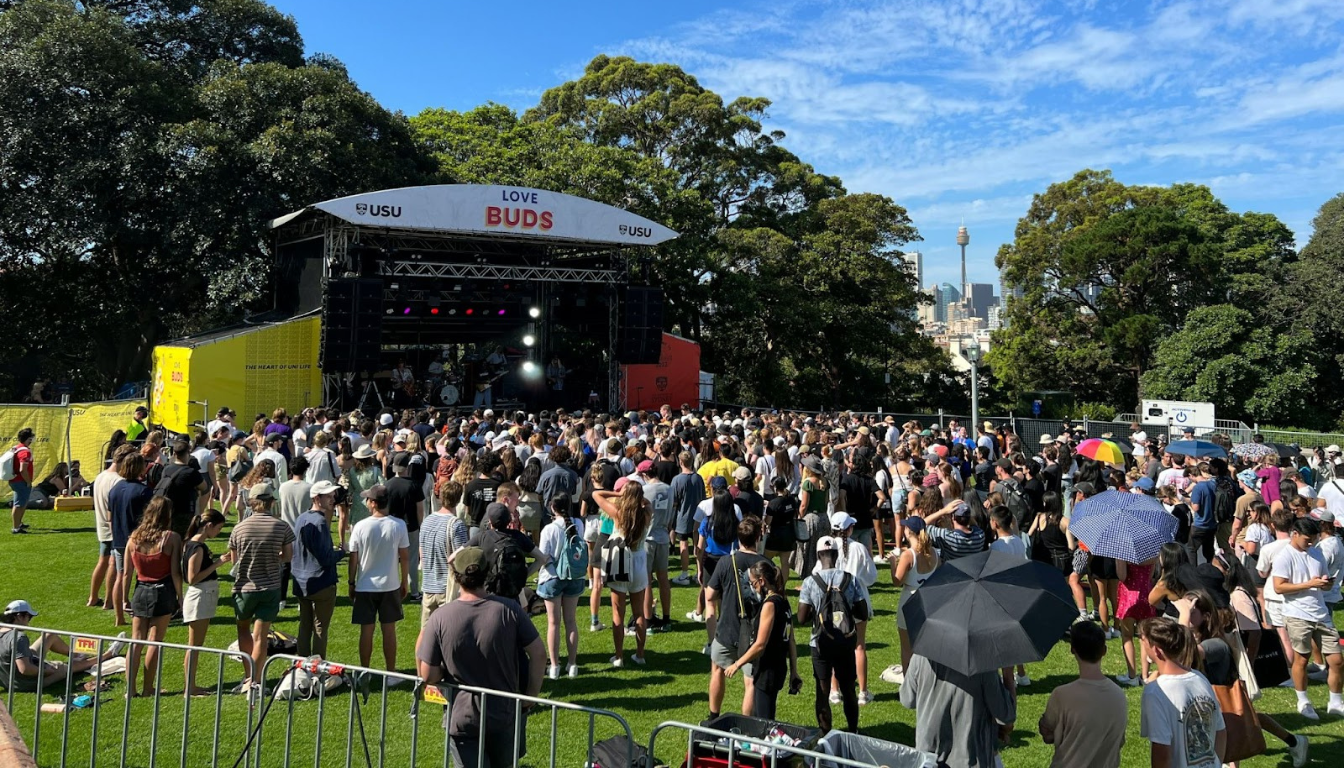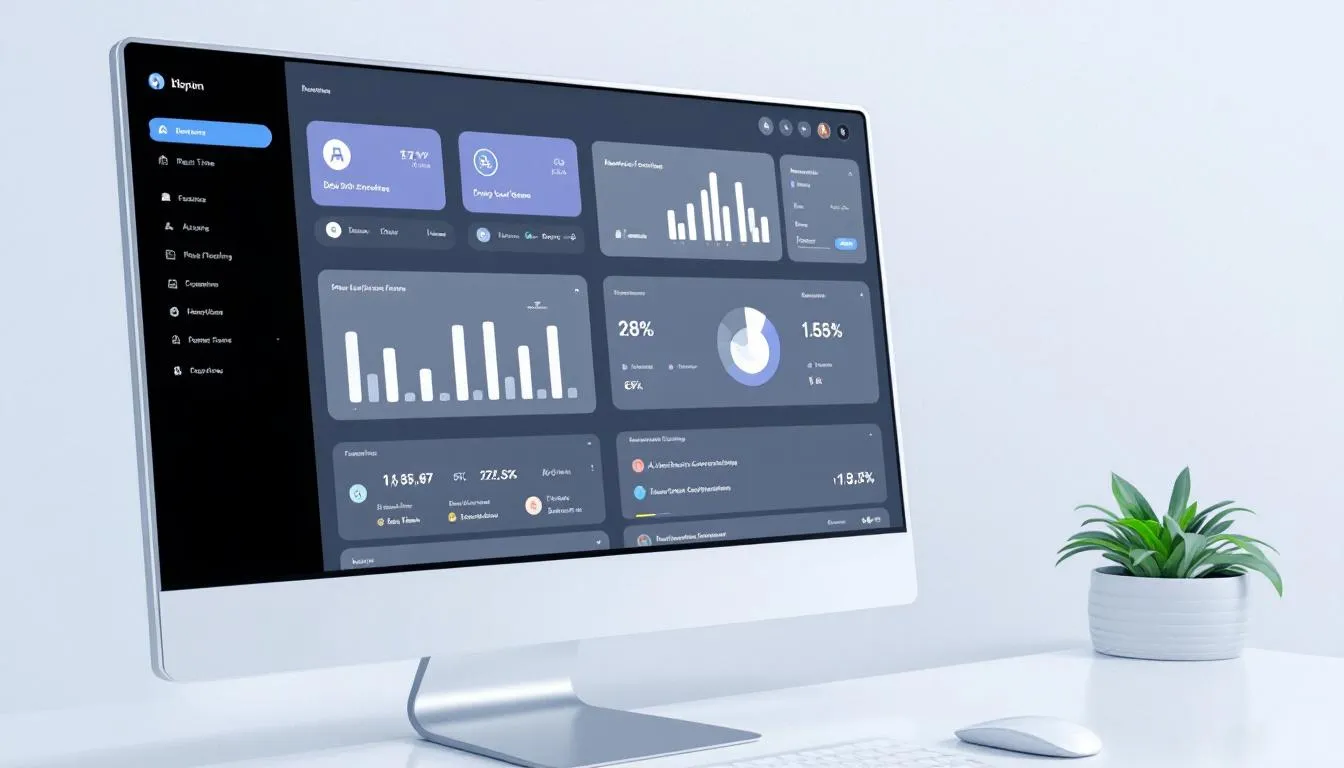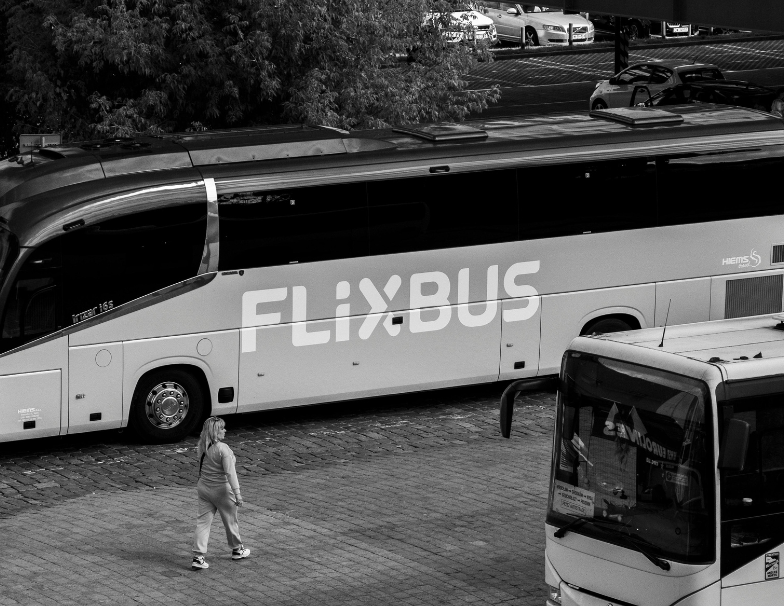Master Event Budgeting with the Best Event Budget Software

Need help managing event finances such as corporate retreats? Event budget software is essential for tracking expenses and ensuring you stay on budget. This article explains the key features, advantages, and how to pick the best software for your event needs.
Key Takeaways
- Event budget software automates financial management, enhances decision-making, and reduces overspending risks, leading to improved event success.
- Effective budgeting includes understanding fixed vs. variable costs, utilizing a contingency fund, and tracking revenue streams to maintain financial control.
- Post-event financial analysis and stakeholder feedback are essential for refining future budgets and improving overall event planning efficiency.
Understanding Event Budget Software

Event budget software is a crucial tool for event or retreat planners, providing a streamlined approach to managing finances and staying within budget limits. This software automates workflows and offers data-driven insights, enhancing decision-making efficiency and reducing the risk of overspending. Without effective budget management, an event planner can face numerous challenges, including coordination delays, strained vendor relationships, and the potential for significant financial losses related to the event’s overall success.
Real-time updates from budgeting tools empower teams to monitor expenses closely and make necessary adjustments, ensuring the event’s financial success.
Key Features to Look For
When selecting event budget accounting software, look for features that cater to a broad range of budgeting needs. Tools like Cvent Budget Management allow users to track spending and generate detailed reports, which are vital for keeping expenses in check.
Budget templates are also invaluable, helping track various event costs, including production, room rates, and food and beverage expenses. A complete guide to an event budget template with real-time reporting functionalities enables event planners to make informed decisions and manage expense reports effectively.
Additionally, integration with other event technology solutions and travel budget management tools like TravelPerk can simplify the process of tracking spending and enhance overall efficiency.
Benefits of Using Event Budget Software
Implementing event budget software for corporate events and retreats offers advantages that go far beyond basic financial oversight. By automating budgeting tasks, the software frees retreat planning teams from manual tracking, allowing them to focus on higher-level decisions related to team-building, logistics, and programming. It generates detailed financial reports tailored to offsite planning, helping all stakeholders—including HR, operations, and executive leadership—understand their fiscal responsibilities within the retreat. This centralized visibility encourages collaborative budget decisions and reinforces alignment across departments. Moreover, the transparency in cost documentation builds trust by clearly illustrating how retreat funds are allocated, from venue rentals to training facilitators. Ultimately, precise budget tracking reduces the likelihood of overspending and significantly improves the financial efficiency of corporate retreats.
Case Study: Successful Implementation
A real-world example of successful event budget software implementation can be seen with Lincoln Financial Group. After adopting this technology, the company experienced a significant number of benefits, including a 22% increase in meeting spend attendance, illustrating how efficient budget management can greatly affect event success.
This case study highlights the tangible benefits that event budget software can bring to an organization, from improved financial oversight to increased attendee engagement.
Essential Components of an Event Budget

Creating an effective event budget is fundamental to ensuring a corporate event’s financial performance and overall success. An event budget should encompass comprehensive expense categories, covering all conceivable costs related to the event. This includes key cost components like venue costs, food and beverage, and other logistical expenses, which can account for substantial portions of the total budget.
Implementing proper financial management practices helps ensure adherence to the budget, facilitates tracking of income and expenses, and prevents significant forecasting errors.
Fixed Costs vs. Variable Costs
Event budgets consist of two main types of costs: fixed costs and variable costs. Fixed costs are expenses that remain constant, regardless of attendance numbers. They are usually expressed as a total sum. Examples of fixed costs include signage and certain venue fees.
On the other hand, variable costs fluctuate based on the number of attendees and are usually calculated on a per-person basis. Catering is a prime example of a variable cost. Understanding the distinction between these cost types is crucial for effective budget management, as it helps event planners anticipate and control overall event expenses.
Contingency Fund
In the realm of event budgeting, having a contingency fund is essential for managing unexpected expenses that may arise during the planning and execution phases. Setting aside 10-15% of the overall budget for unexpected costs is a common practice.
Calculating this contingency fund involves determining the specified percentage of the total budget to ensure adequate coverage for these unexpected expenses. This financial buffer provides peace of mind and helps maintain the event’s financial stability even when surprises occur.
Tracking Revenue Streams
Tracking various revenue streams is a critical aspect of effective event budgeting. Analyzing these sources helps forecast the financial viability of an event. Tools like Excel or Google Sheets can be highly effective for tracking revenue streams such as ticket sales, sponsorships, and merchandise sales.
Meticulously tracking these income sources allows event planners to better manage budgets and ensure an increased ROI (return on investment).
How to Create a Detailed Event Budget

Creating a detailed event budget involves several key steps that guide decisions within financial constraints and streamline planning components, including setting clear event goals. It starts with analyzing potential revenue streams such as ticket sales or sponsorships.
The process also includes:
- Considering different revenue sources to cover expenses
- Factoring in travel and accommodation costs for employees and attendees
- Setting aside a contingency fund for unforeseen expenses
Real-time reporting facilitates quick adjustments to budgets, enhancing overall financial management during events.
Finally, post-event evaluations provide insights into financial efficacy, enabling planners to improve future budgeting strategies for the next event.
Start with Historical Data
Leveraging historical data is a valuable starting point for setting realistic budget limits. Key approaches include:
- Analyzing past events financial records to make better predictions regarding future event costs.
- Using budget templates in software to streamline the creation of financial plans for various event types.
- Reducing manual entry errors through the use of these templates.
Tools like Offsite further aid in budget estimation by offering customizable templates tailored to different retreat types.
Break Down Major Expense Categories
Breaking down major expense categories such as venue, catering, and marketing can lead to better budget management and cost control. Venue costs typically include rental fees, utilities, and any additional services associated with the space used for the event.
Catering costs encompass food, beverages, and service staff, which are major components of the event budget and often subject to negotiation. Marketing costs are essential for promoting the event and may include advertisement, promotional materials, and outreach efforts.
Additionally, staffing costs, logistics, and miscellaneous costs like insurance and permits, as well as other costs, should be considered to ensure a comprehensive logistical costs budget.
Regularly Review and Adjust
Continuous budget tracking is crucial for:
- Promptly adjusting expenditures and staying within financial limits.
- Providing access to current financial data, helping event planners quickly adapt their strategies to avoid potential budget overruns.
- Enabling real-time financial oversight so teams can detect overspending early and take prompt corrective measures.
Identifying discrepancies between projected and actual costs improves future budgeting accuracy and enhances overall event planning efficiency.
Tools and Technologies for Effective Budget Management

Modern tools and technologies play a pivotal role in effective event budget management. Budgeting tools help track budget changes and adjust allocations as needed during event planning. Cloud-based expense management tools like Expensify provide real-time tracking and collaboration features for event planners.
Additionally, integrating budgeting tools with event registration technology can automate data entry, enhancing efficiency and reducing administrative costs. These technologies streamline the budgeting process, making it easier to achieve financial goals and manage expenses effectively.
Offsite: Simplifying Corporate Retreat Budgets
Offsite offers a suite of features designed to streamline budget management for corporate retreats. These features focus on cost tracking and travel expenses, ensuring that corporate retreats stay within the planned budget. Offsite’s efficient cost tracking capabilities provide improved oversight on travel expenses, making it easier to manage and optimize the budget from start to finish.
With Offsite, every dollar spent on a corporate retreat is accounted for, contributing to smarter budgeting and financial planning.
Integration with Event Management Software
Integrating budgeting tools with event management software enables event planners to streamline their operations for better workflow and efficiency. This integration ensures all aspects of the event are synchronized, reducing manual errors and saving time.
With integrated systems, event planners can:
- Track expenses in real-time, facilitating quicker decision-making and better financial oversight.
- Benefit from enhanced functionalities such as automatic updates on budget status.
- Use consolidated reporting to gain a comprehensive understanding of financial health throughout the event lifecycle.
Mobile Solutions for On-the-Go Budgeting
Mobile applications enable event planners to manage their budgets conveniently, allowing updates and tracking from any location. These apps enable planners to make real-time adjustments and track expenses remotely, ensuring timely and effective budget management.
The ability to adjust budgets on the go makes sense and helps planners stay on top of their financial goals and respond quickly to any changes or last-minute needs.
Strategies to Reduce Event Costs Without Compromising Quality

Strategic planning is crucial for identifying potential areas for cost reduction and maximizing budget efficiency without compromising event quality. Negotiating with vendors, seeking discounts, and securing sponsorships can significantly cut costs. Getting multiple quotes for significant expenses prevents overpaying and aids in better negotiation.
Understanding labor fees and equipment rentals helps avoid surprise AV costs and manage audiovisual expenses effectively. Tools like Qwick can save time and money by providing immediate access to qualified hospitality staff.
Balancing quality and cost while ensuring engagement and attendee satisfaction is key to successful event planning for event professionals, enhancing the guest experience.
Smart Venue Selection
Choosing a venue that aligns with the event’s goals can greatly enhance the attendee experience and engagement. Using online venue finder tools can streamline the process of evaluating potential venues by filtering options based on specific criteria. Key factors in venue selection include accessibility, capacity, and the availability of necessary amenities for a successful event.
Selecting a venue during off-peak times can result in substantial cost savings on rental fees. Understanding the flow and layout of the venue is essential to minimize crowding and enhance overall attendee interaction.
Efficient Food and Beverage Planning
Food and beverage expenses can consume 30% to 50% of the total event budget. One effective way to compensate for high venue rental costs in the budget is by downgrading the catering package.
Strategic event planning in the food and beverage menu category can help manage costs while still providing a satisfactory attendee experience.
Leveraging Technology for Savings
Engaging stakeholders in budget discussions can uncover new insights and drive cost-effective decisions. Leveraging technology in event budgeting aids in automating processes and improving efficiency, ultimately helping to reduce costs.
Utilizing tools that streamline budget tracking and reporting can save money and time, leading to more cost-effective event planning.
Real-Time Reporting and Financial Transparency
Real-time reporting enables event planners to:
- Immediately identify discrepancies in financial data, facilitating prompt corrective actions.
- Use tools like Cvent’s Budget Management to easily track event spending and gain a comprehensive view of costs and ROI.
- Utilize clear reporting capabilities to justify expenditures to stakeholders and improve overall return on investment.
Integrating budgeting tools with event management platforms enhances financial visibility and operational efficiency, streamlining cost tracking and enhancing financial oversight.
Benefits of Real-Time Financial Data
Tracking financial data is crucial to adapt to changes and manage unplanned expenses. Regularly reviewing the budget allows planners to respond to rising expenses by evaluating how much to spend on adjustments.
When expenses rise, collaborate with the team to pinpoint areas where spending can be reduced. Real-time financial data enables quick and informed decision-making, ensuring cost-effective event management.
Ensuring Stakeholder Accountability
Having a budget is essential for events that involve various stakeholders. It promotes both fiscal responsibility and transparency. Detailed financial reports allow stakeholders to see clear expenditure records, enhancing accountability and promoting financial integrity.
This transparency helps resolve conflicts arising from differing priorities among stakeholders, thereby improving trust and collaboration. By providing a holistic view of financial decisions, budgeting fosters a sense of shared responsibility and collective ownership of the event’s financial health.
Post-Event Financial Analysis
Post-event financial analysis is vital for measuring the success of an event and informing future planning strategies. A clear event budget helps measure success by comparing actual revenue and expenses to projections.
Brands can evaluate the financial performance of an event by:
- Comparing the estimated costs and revenues with the actual figures.
- Analyzing these outcomes to provide benchmarks for measuring success.
- Highlighting areas for improvement to ensure better financial planning for future events.
Comparing Projected vs. Actual Costs
Comparing projected budget estimates with actual spending is essential for accurate financial analysis and budget management. Event budgets help in spending decisions, measuring post-event success, and ensuring return on investment (ROI). Identifying discrepancies between projected and actual costs allows planners to adjust their strategies and control their budgets effectively.
Regularly evaluating budget performance helps improve future budgeting practices and enhances overall event planning efficiency.
Gathering Feedback for Future Events
Gathering feedback from stakeholders and attendees is crucial for refining budgets for future events. This feedback provides insights into what worked well and what didn’t, helping event planners make informed decisions for future budgeting. By incorporating this feedback into the event planning process, planners can improve the overall attendee experience and ensure the financial success of future events.
Engaging stakeholders in post-event discussions fosters a collaborative approach to budget planning and enhances the strategic event planning process.
Summary
Mastering event budgeting is essential for ensuring the financial success of any event. By understanding and utilizing event budget software, planners can automate workflows, gain valuable insights, and make informed financial decisions. Key features such as real-time reporting, budget templates, and integration with event management software are crucial for effective budget management. The benefits of using these tools extend beyond financial control, fostering collaboration and transparency among stakeholders.
Essential components of an event budget, including fixed and variable costs, contingency funds, and revenue streams, provide a comprehensive framework for financial planning. Creating a detailed event budget involves leveraging historical data, breaking down major expense categories, and regularly reviewing and adjusting the budget. Modern tools and technologies, such as cloud-based and mobile budgeting solutions, streamline the budgeting process and enhance financial oversight. By implementing strategic cost-saving measures and leveraging technology, event organizers can reduce expenses without compromising quality. Ultimately, real-time reporting and post-event financial analysis are crucial for continuous improvement and future event success.
FAQs
- Why is event budget software important for event planners?
Event budget software is crucial for event planners as it automates workflows, offers data-driven insights, and allows for real-time updates, ensuring they can manage expenses effectively and make informed decisions.
- What are the essential components of an event budget?
An essential event budget must incorporate both fixed and variable costs, a contingency fund for unexpected expenses, and careful tracking of revenue streams to ensure financial stability throughout the event. Prioritizing these components will help in managing expenses and achieving your event goals effectively.
- How can historical data aid in creating a detailed event budget?
Historical data aids in creating a detailed event budget by offering a realistic benchmark for budget limits and enhancing the accuracy of future cost predictions. Utilizing past financial records ensures informed decision-making and effective financial planning.
- What are the benefits of integrating budgeting tools with event management software?
Integrating budgeting tools with event management software enhances financial oversight by synchronizing operations, reducing manual errors, and providing real-time expense tracking. This ultimately saves time and improves efficiency in managing event finances.
You may also like
Unique spaces for your next offsite
Find distinctive venues for your upcoming corporate retreat.
Stay Updated with Our Insights
Get exclusive content and valuable updates directly to you.







